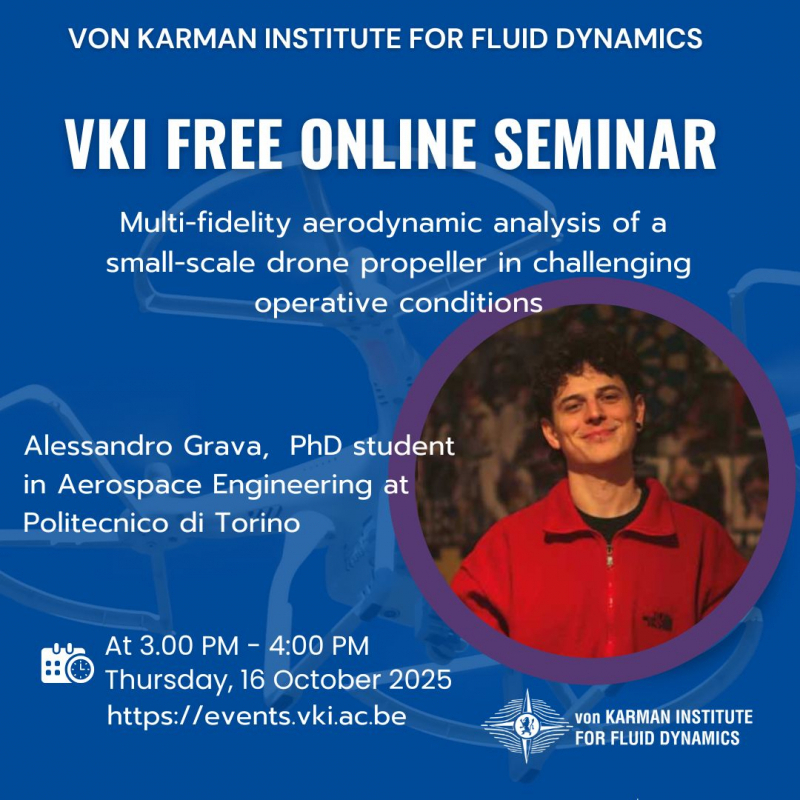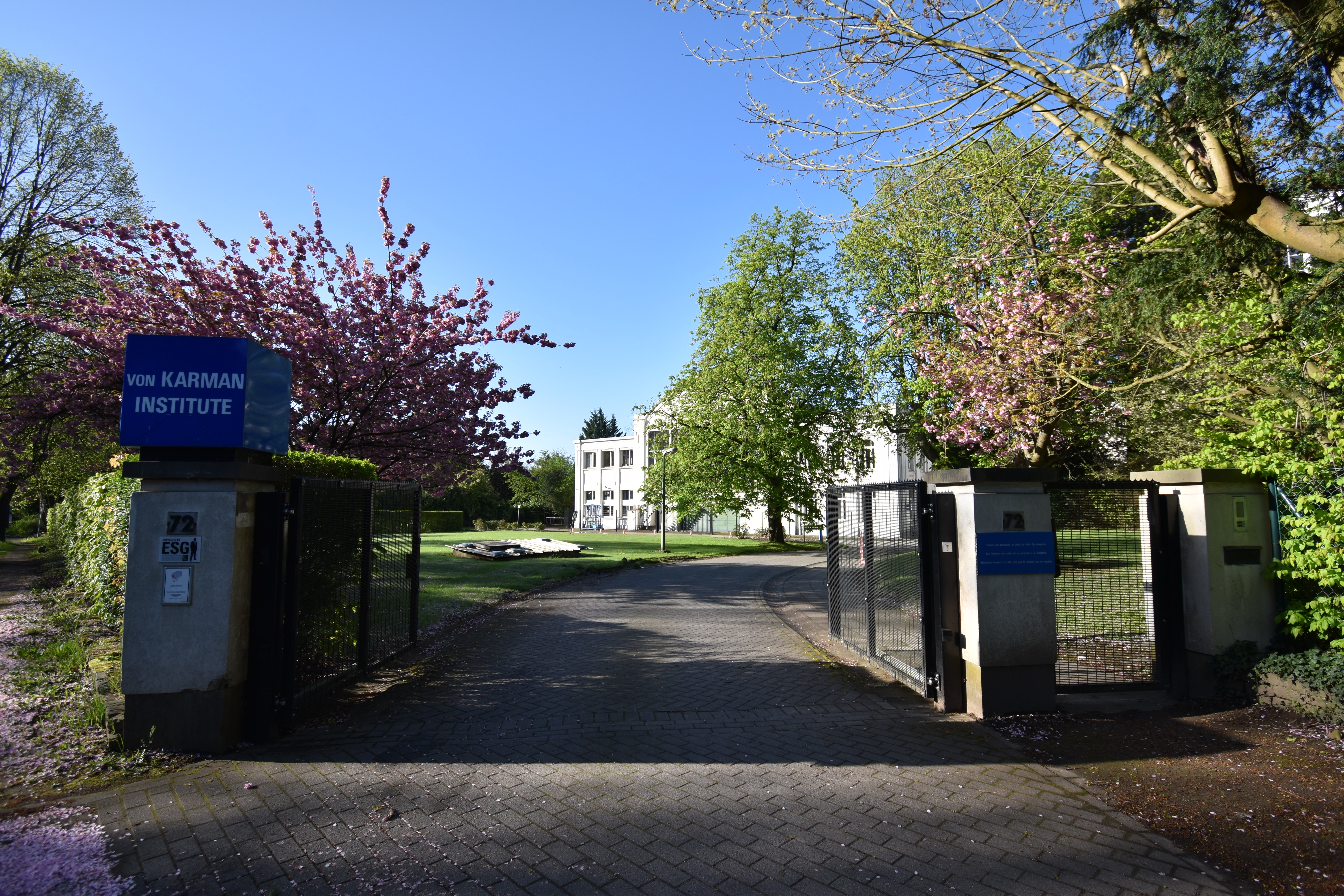Free Online Seminar: Multi-fidelity aerodynamic analysis of a small-scale drone propeller in challenging operative conditions

We are happy to invite you to the free online seminar titled: "Multi-fidelity aerodynamic analysis of a small-scale drone propeller in challenging operative conditions." The seminar will be presented by Alessandro Grava, PhD student in Aerospace Engineering at Politecnico di Torino.
Date: Thursday, October 16
Time: 03:00 PM – 04:00 PM
Abstract:
As small drones become increasingly relevant in various applications, their operation demands a deeper understanding of their aerodynamic behaviour beyond ideal operative conditions. This seminar presents a multi-fidelity investigation of a small-scale drone propeller under challenging scenarios that are critical to performance and reliability, but often neglected in standard design approaches.
The first analysed condition involves the interaction with an external cross-flow, perpendicularly oriented to the propeller’s rotation axis. The cross-flow condition is representative of forward flight, gust encounters, and rotor-to-rotor interactions in multicopter systems. A combination of advanced experimental techniques, including Particle Image Velocimetry (PIV), and high-fidelity computational tools, such as Large Eddy Simulations (LES), was used to characterise the propeller’s aerodynamic response and capture the wake evolution. The cross-flow significantly affects the propeller’s aerodynamic performance, primarily increasing the time-averaged thrust and torque, and induces strong asymmetries in the wake structure, including tilted helicoidal patterns and enhanced three-dimensionality. A low-order model based on momentum balance is additionally proposed to predict the deflection of macro-scale vortical structures, accurately capturing the main trends observed in high-fidelity simulations.
This seminar also explores the aerodynamic effects of dynamic maneuvers, such as rapid variations in rotational speed and tilt angle, which often occur during obstacle avoidance or attitude corrections. These maneuvers are computationally expensive to simulate with conventional high-fidelity tools. To overcome this limitation, ONERA’s vortex particle solver “VULCAINS” was employed. The solver models the blades as lifting lines that shed vorticity particles in the induced wake, providing mesh-free simulations with reduced computational cost, while preserving key flow physics. Rapid maneuvers are observed to induce unsteady aerodynamic effects that influence the propeller performance and wake structure, with faster transients significantly deviating from steady-state conditions and amplifying hysteresis phenomena.
By integrating experimental insight with both high- and mid-fidelity numerical methods, the work presented in this seminar contributes to a more accurate and robust modelling of small-scale rotary-wing aerodynamics in challenging operative conditions. The obtained results aim to inform the design of more efficient, responsive, and reliable propellers in the evolving landscape of unmanned aerial mobility.
Before registering, please check our eligibility criteria.
Event Information
| Event Date | 16-10-2025 3:00 pm |
| Event End Date | 16-10-2025 4:00 pm |
| Cut off date | 16-10-2025 10:00 am |
| Location | von Karman Institute for Fluid Dynamics |
Venue Information - von Karman Institute for Fluid Dynamics

